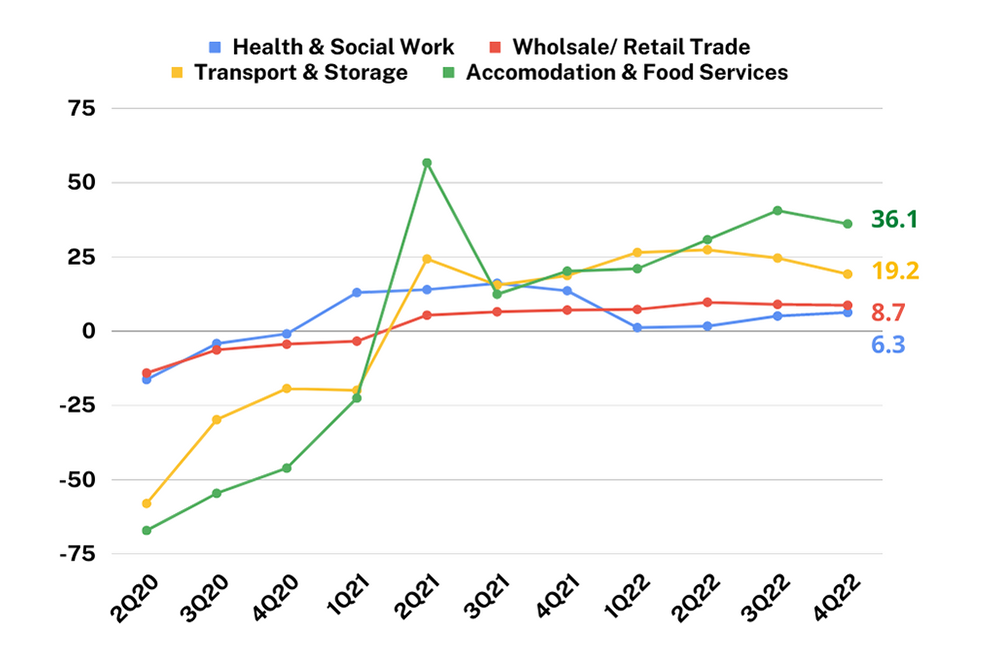PH Grows by 7.6% in 2022, Exceeds Target

26 January 2023 – The Philippines grew by 7.2% in the 4th quarter, contributing to the full-year growth of 7.6%, the highest since 1976. This also exceeds the government’s target for 2022 set at 6.5 to 7.5% and has exceeded its pre-pandemic growth of 5.9% in 2019.
The top performers for 2022 were Accommodation and Food Service activities (31.8%), Other Services, which includes arts, entertainment, and other service activities (28.3%), Transportation and storage (23.9%), and Construction (12.7%). Meanwhile, Agriculture, Forestry, and Fishing (0.5%), Human Health and Social Work activities (3.6%), and Public Administration and Defense (3.8%) were reported laggards for the year.
The previous year was difficult for the global economy, with the Philippines specifically getting hit by inflationary effects and supply chain disruptions for oil and other key food commodities. Despite this, the country’s economy significantly rebounded due to the easing of pandemic restrictions resulting in increased consumer spending and growth in tourism with positive impacts on jobs. According to Sec. Balisacan: “Economic growth came with more jobs. We saw vibrant labor market conditions with the unemployment down to 4.2% in Nov 2022 from 6.5% in the same period 2021. This performance marks our lowest unemployment rate since 2005. We observed an improvement in the quality of employment relative to last year as workers found more stable work in private establishments and became employed in full-time jobs.”
However, prospects for 2023 are challenging. The International Monetary Fund noted that “this year may feel like a recession”. In order to sustain growth, Sec. Balisacan committed that the government’s priorities will focus on easing the burden of inflation and ensuring food supply through the development of the agriculture sector.
Prospectively, NEDA Sec. Balisacan noted that key economic reforms passed in 2022 are expected to bring in foreign investment to sustain growth in 2023. Some of these recently passed reforms include the Amendments to the Public Service Act, Retail Trade Act, and Foreign Investment Act as well as amendments to the IRRs of the Build Operate Transfer Law and the Renewable Energy Act.
Growth in %
Insights from Key Economists
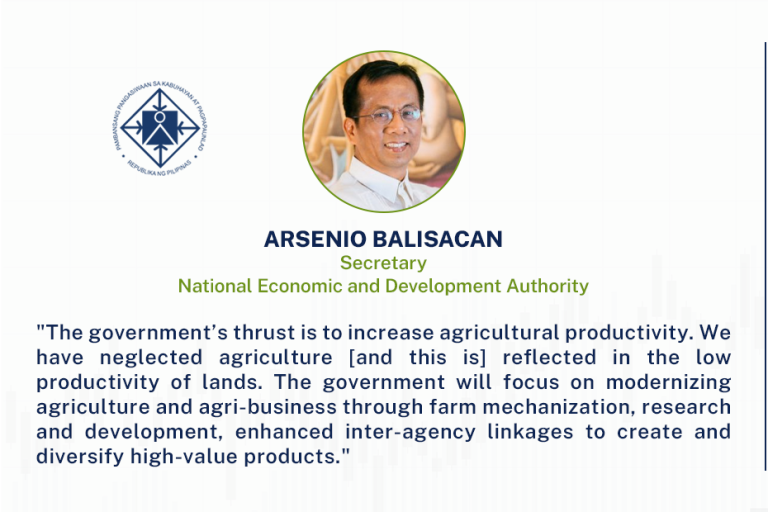

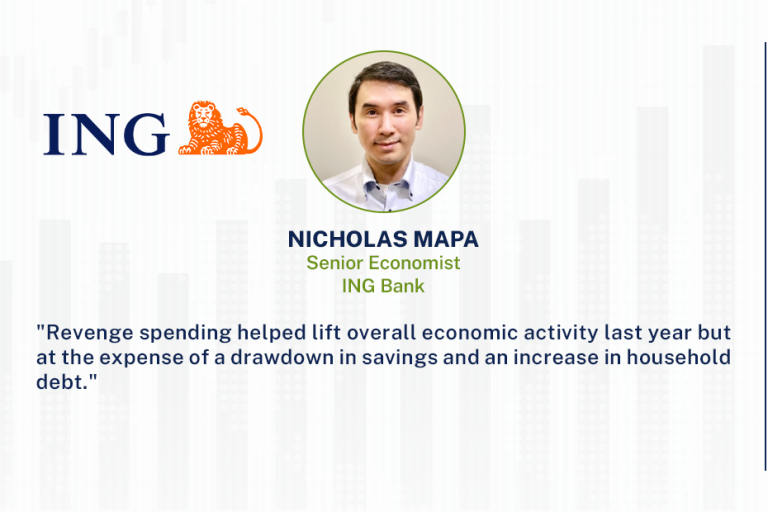
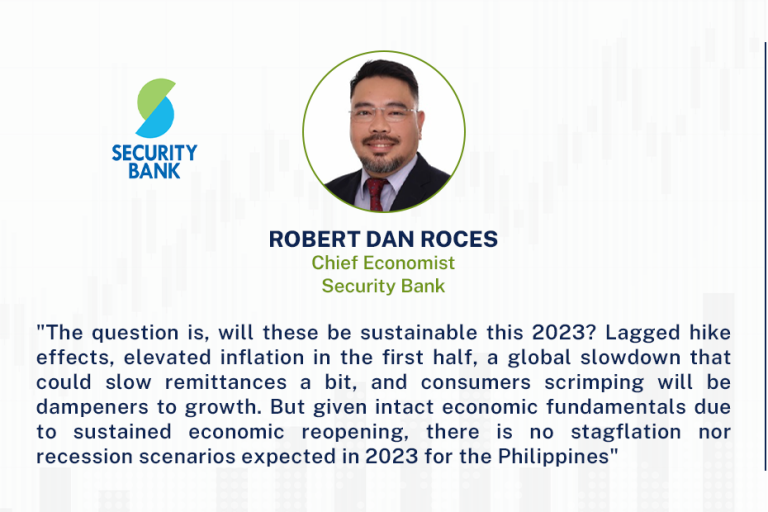

UPCOMING EVENT: F2F with Cab Sec Benjamin Diokno
MBC kickstarts its 2023 Cabinet Series with DOF Secretary Benjamin Diokno on February 3 at the Makati Diamond Residences.
Secretary Diokno will discuss achievements of the first six months, and the work needed to turn an optimistic outlook into reality. This series is supported by Acciona, SM Investments, and Steel Asia
#MBC #Government #National #NatGovSeries
Co-presented by MBC's official Economy Partner

Share MBC's GDP Insights on Social Media
MBC's Economy Dashboard
The Makati Business Club (MBC) pilots its Economy Dashboard and provides a snapshot of key socio-economic data to help executives and policymakers make better decisions in today’s fast-changing economy.
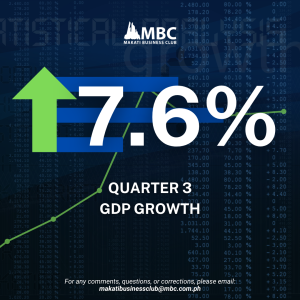
Makati Business Club's 2022 Q3 Economic Highlights
PH PH Grows by 7.6% in Q3
10 November 2022 – The Philippines grew by 7.6% in the 3rd quarter, maintaining the country’s recovery trajectory for the past 5 quarters. The economy grew by 2.9% on a quarterly basis, higher than the growth posted during the last quarter.
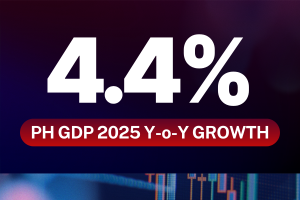
PH Economy Grew at 4.4% in 2025, Lowest Post-Pandemic Growth Recorded
PH Economy Grew 4.4% in 2025; Lowest Post-Pandemic Growth Recorded 29 January 2026 — Philippine Gross Domestic Product grew by 3.0% in the fourth quarter
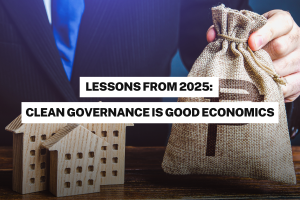
Lessons from 2025: Clean Governance is Good Economics
Lessons from 2025: Clean Governance is Good Economics 26 January 2026 – 2025 started off with a major controversy surrounding the National Budget, which had
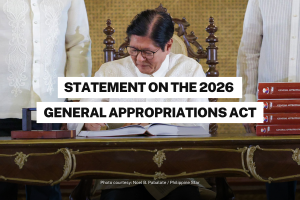
Statement on the 2026 General Appropriations Act
Statement on the 2026 General Appropriations Act 05 January 2026 – The 2026 General Appropriations Act, signed today by the President, represents an improvement compared





